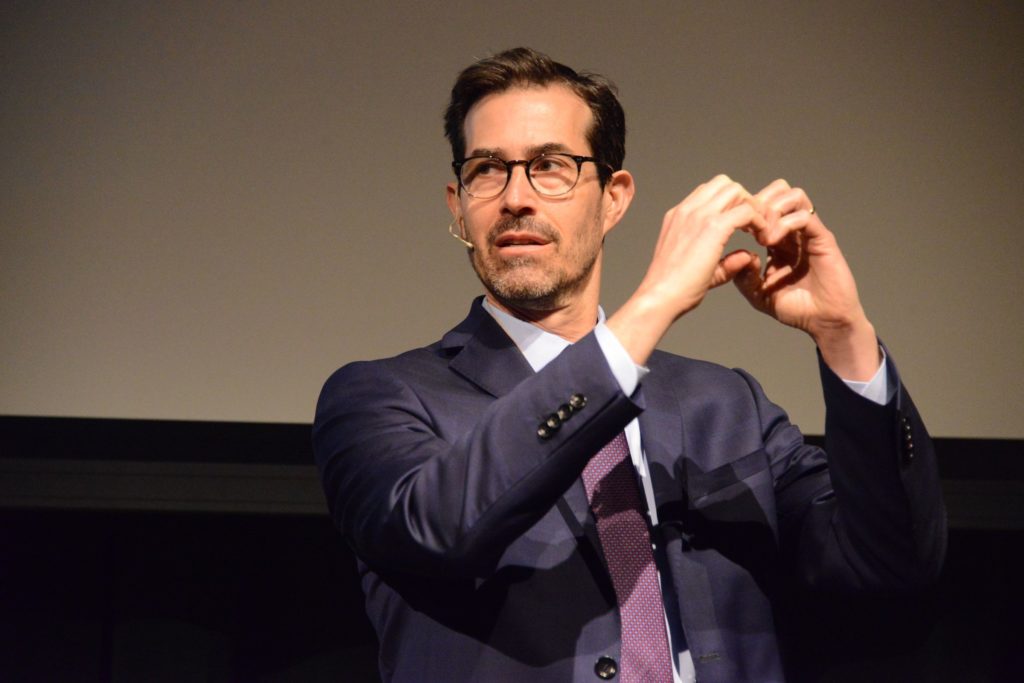Juuling and Schooling: The Facts from Dr. Jon Winickoff ‘88
In Hall on Tuesday, March 5, Roxbury Latin students, faculty, and staff heard from Dr. Jon Winickoff, RL Class of ’88, on the topic of Juuling. Dr. Winickoff shared worrying information about trends in middle and high schools across the country, but also highlighted the important advocacy surrounding enforcement of the new tobacco 21 law and banning e-cigarette flavors. So far in 2019, Dr. Winickoff is the third speaker in a series of Halls dedicated to addressing the health and wellness of our boys.
Dr. Winickoff is a pediatrician at Mass General Hospital, and a professor of pediatrics at Harvard Medical School. In addition to more than 100 original research publications, he has drafted key tobacco control policy and served as a scientific advisor for many state and national programs and organizations, including the CDC, the FDA, the National Academy of Medicine, and the U.S. Surgeon General through the Committee on Smoking and Health. His research led to the creation of the Clinical and Community Effort Against Secondhand Smoke Exposure program, now freely available in all 50 states, as well as smoke-free public housing in the city Boston and the state of Maine. It was his work, too, that facilitated HUD’s successful national effort to make all public housing buildings smoke-free in 2018.
In his Hall, Dr. Winickoff made clear the health consequences of e-cigarette use in youth under the age of 21, as well as its prevalence. Almost half of all high school students have tried e-cigarettes, and 25% of high school seniors in Massachusetts are regular e-cigarette users. These statistics have health professionals deeply concerned about addiction; 95% of adult smokers in the U.S. start before the age of 21. Getting youth to age 21 without cigarette or e-cigarette use is critical, Dr. Winickoff explained, because the risk of becoming addicted to nicotine plummets for first-time smokers after the age of 21. Youth are particularly vulnerable to nicotine addiction, and can become addicted with lower levels of use than adults. Beyond nicotine dependence, using e-cigarettes raises concern for worsened asthma, increased anxiety, heart disease, and risk of cancer.
When Dr. Winickoff asked students on Tuesday morning to raise their hand if they knew someone who used Juul e-cigarettes, nearly everyone in the Smith Theater put a hand in the air. As he laid out the health risks and statistics surrounding nicotine addiction, that fact became all the more sobering. We are grateful that Dr. Winickoff could return to his alma mater to educate us all on this important topic.

